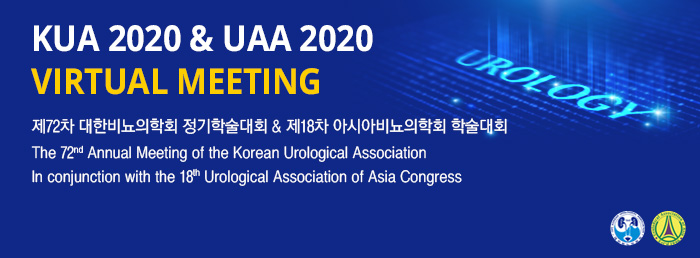|
Incontinence & Female Urology & Neurourology(구연)
|
(E-183)
|
|
|
Transobturator four-arms mesh in the surgical management of cystocele : a long term follow up |
| Urology, Chungnam National University Hospital, Urology, Chungnam National University Hospital, Urology, Chungnam National University Hospital, Urology, Chungnam National University Hospital, Urology, Chungnam National University Hospital, Urology, Chungnam National University Hospital, Urology, Chungnam National University Hospital, Urology, Chungnam National University Hospital, Urology, Chungnam National University Hospital |
| Chung Lyul Lee, Jae Sung Lim, Ki Hak Song, Yong Gil Na, Ju Hyun Shin, Seung Woo Yang, Jong Mok Park, Ji Yong Lee, Hyun Seok Na |
|
Background: Among POP, Cystocele, anterior vaginal wall prolapse (AVWP), is the most common type and still remains the weak point of vaginal surgery, with recurrence rates of 30–50% depending on the technical methods and reporting authors. / Objectives: In this study, we evaluate the long-term safety and efficacy of cystocele treatment using a transobturator four-arms polypropylene mesh and explore whether it is applicable to a wide range of cystocele`s patients. / Materials and Methods: Between January 2003 and December 2015, a retrospective research was performed to evaluate 198 women with stage≥2 cystocele and underwent anterior vaginal wall repair with polypropylene mesh. Outcome of clinical characteristics and complications were reviewed by browsing electronic medical records of routine postoperative follow-up. In addition, telephone interview using a validated questionnaire and physical examination were conducted. The anatomical outcome was measured by physical examination and postoperative stratification of cystocele. / Results and Conclusion: Result: The average age of the patients was 61.7±0.8 years, and average follow-up time was 9.3±0.3 years. Compared with pre-operation and post-operation, cystocele stage of patients is significantly decreased (P<0.001). The anatomical cure rate for cystocele was 93.4% and SUI was 95%. Comparison of the three questionnaires before and after operation, showed a significant improvement in the overall average score except FSFI (P<0.001). The incidence of early complications was resolved spontaneously or controlled medically with 4 cases of hematoma or abscess, 3 cases of vaginal infection and UTI respectively, 4 cases of difficult micturition and 16 cases of de-novo urgency. In late complications, 4 cases of pain were managed, 2 cases of mesh exposure were treated with topical ointment and local excision respectively. There were 5 cases of recurrence and only 2 of them needed second operation. Conclusion:In this retrospective study, transobturator four-arms mesh was deemed effective and safe in the treatment of cystocele with a low rate of complications, low incidence of secondary surgery, and it was the preferred surgical method for elderly patients unsuited for general anesthesia and in countries with difficult access to laparoscopic and robotic treatment. |
|
keywords : cystocele, follow-up studies, surgical mesh |
|

